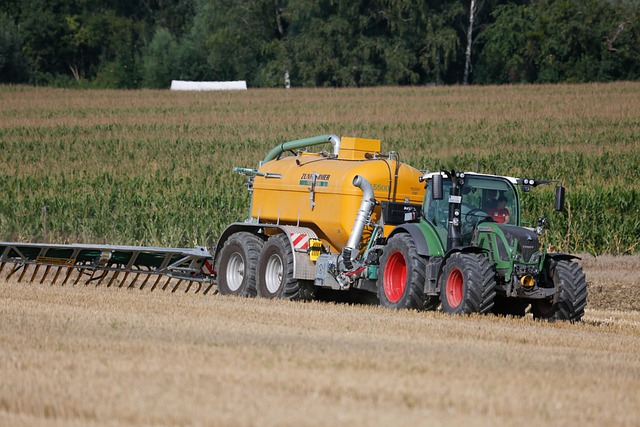Bio-Fertilizers for Smart Farming

In today’s agricultural landscape, modern farming practices are evolving to meet the dual challenge of increasing crop productivity while maintaining environmental sustainability. Among the most transformative tools in this revolution are bio-fertilizers, naturally occurring microorganisms that enrich the soil with essential nutrients, promote plant growth, and enhance soil fertility without the adverse effects of chemical inputs. Unlike conventional fertilizers, which often lead to soil degradation, water contamination, and long-term ecological imbalance, bio-fertilizers work in harmony with nature, offering a sustainable and eco-friendly alternative for farmers.
Bio-fertilizers contain beneficial bacteria, fungi, and other microorganisms that fix atmospheric nitrogen, solubilize phosphorus, and stimulate root growth, ensuring plants receive the nutrients they need in a natural form. They also improve soil texture, boost microbial activity, and enhance the overall health of the soil ecosystem. This not only leads to healthier plants but also contributes to long-term soil productivity.
The adoption of bio-fertilizers aligns with the global push towards organic and sustainable agriculture. Modern farmers are increasingly aware of the need to reduce chemical dependency and mitigate environmental risks. By integrating bio-fertilizers into their farming practices, they can achieve higher yields, better-quality crops, and greater resilience against pests and diseases. Furthermore, bio-fertilizers are cost-effective, easy to use, and suitable for a wide variety of crops, making them an essential component of precision agriculture and smart farming solutions.
In essence, modern farming with bio-fertilizers represents a shift towards a greener, more sustainable agricultural future—one where productivity and environmental responsibility go hand in hand. Farmers who embrace this approach not only secure higher profits but also contribute to a healthier planet for future generations.
Understanding Bio-Fertilizers
Bio-fertilizers are natural formulations containing living microorganisms that help plants absorb essential nutrients from the soil. These microorganisms include nitrogen-fixing bacteria, phosphate-solubilizing bacteria, and mycorrhizal fungi. Unlike chemical fertilizers, bio-fertilizers do not add toxic chemicals to the soil. Instead, they improve soil fertility naturally, promoting long-term agricultural sustainability.
Types of Bio-Fertilizers
- Nitrogen-Fixing Bio-Fertilizers
Nitrogen is a critical nutrient for plant growth, and nitrogen-fixing bio-fertilizers, such as Rhizobium and Azotobacter, convert atmospheric nitrogen into forms plants can use. This reduces the need for synthetic nitrogen fertilizers, lowering production costs and environmental impact. - Phosphate-Solubilizing Bio-Fertilizers
Phosphorus is essential for root development and energy transfer in plants. Phosphate-solubilizing bacteria, such as Bacillus and Pseudomonas, release phosphorus bound in the soil, making it available to plants naturally. - Potassium and Other Microbial Fertilizers
Certain microorganisms help in solubilizing potassium and producing growth-promoting substances. These enhance overall plant health, improve resistance to diseases, and support stronger crop development.
Benefits of Using Bio-Fertilizers
- Eco-Friendly and Sustainable: They reduce dependency on chemical fertilizers and prevent soil degradation.
- Enhanced Soil Fertility: Microbial activity improves nutrient availability and soil structure.
- Better Crop Yield and Quality: Healthier plants produce higher yields and superior-quality crops.
- Cost-Effective Solution: Farmers can reduce input costs while maintaining productivity.
- Environmental Protection: Minimizes water contamination and greenhouse gas emissions caused by chemical fertilizers.
Integrating Bio-Fertilizers in Modern Farming
Modern farmers can combine bio-fertilizers with organic manures and minimal chemical inputs for integrated nutrient management. Application can be done through seed treatment, soil inoculation, or foliar sprays depending on the crop and growth stage. Precision farming techniques further enhance their effectiveness by optimizing dosage and timing.
Conclusion
Adopting bio-fertilizers in modern farming is not just a trend but a necessity for sustainable agriculture. By improving soil health, boosting crop productivity, and protecting the environment, bio-fertilizers help farmers achieve long-term success. Embracing these natural solutions ensures a balance between high yields and ecological responsibility, paving the way for a greener future in agriculture.

